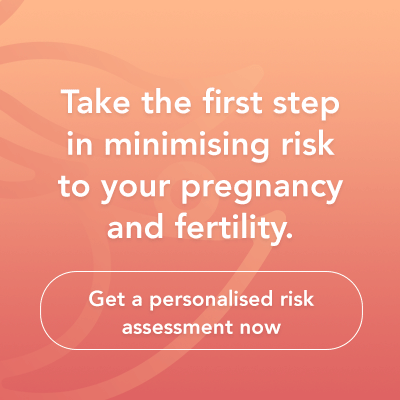In pregnancy, Vitamin K plays an important role in maintaining normal blood clotting and coagulation.
There are two main forms of Vitamin K:
- K1: Phylloquinone (makes up 75-90% of all vitamin K consumed by humans)
- K2: Menaquinones
Why is Vitamin K important in pregnancy?
Vitamin K helps blood to clot and prevents dangerous levels of bleeding. Recent research indicates that vitamin K, particularly K2, plays a key role in cardiovascular health, bone metabolism, and in regulating blood calcium levels.
Babies naturally do not get enough vitamin K from their mothers during pregnancy or lactation. This is why babies are given additional vitamin K when they are born to prevent a rare but fatal condition called vitamin K deficiency bleeding (VKDB).
Major dietary sources of Vitamin K
K1: Phylloquinone
Found in plant foods:
- Green leafy vegetables (kale, spinach, salad greens, cabbage, broccoli, Brussel sprouts)
- Plant oils (canola, soybean, olive)
K2: Menaquinone
Found in animal products and fermented foods, and also produced by gut bacteria:
- Cheese
- Full-fat dairy
- Meat (pork, chicken)
- Egg yolk
- Natto, miso, sauerkraut
How much Vitamin K do I need?
The recommended adequate intake for vitamin K is 60ug/ day for all women, non-pregnant, pregnant and lactating. No additional amount in pregnancy has been recommended, and no upper limits for vitamin K have been set.
Vitamin K Deficiency
The precise role of vitamin K during pregnancy is largely unknown, especially that of K2, however it is well recognised that overall vitamin K deficiency is associated with an increased risk of haemorrhage and can be critical for pregnant women and especially newborns during birth.
Main Takeaways about Vitamin K
- Vitamin K plays a key role in blood clotting and cardiovascular and bone health in both mother and baby
- Babies require a vitamin K injection at birth to restore depleted levels and protect against haemorrhage
- Vitamin K1 is found in plant sources, and K2 is found in animal sources and fermented foods, however the majority of a person’s intake comes from plant foods
- Consult your health care professional before starting supplementation, especially if taking anticoagulants or antibiotics
How Kat Ridout can help
At Katrina Ridout Nutrition, we understand the importance of Vitamin K as well as various other important nutrients. Because of this, we can help to ensure you are meeting all your nutritional needs.
For more nutrition support or to book in for a comprehensive individualised nutrition consultationto optimise your health, be sure to get in touch with Kat Ridout here.
